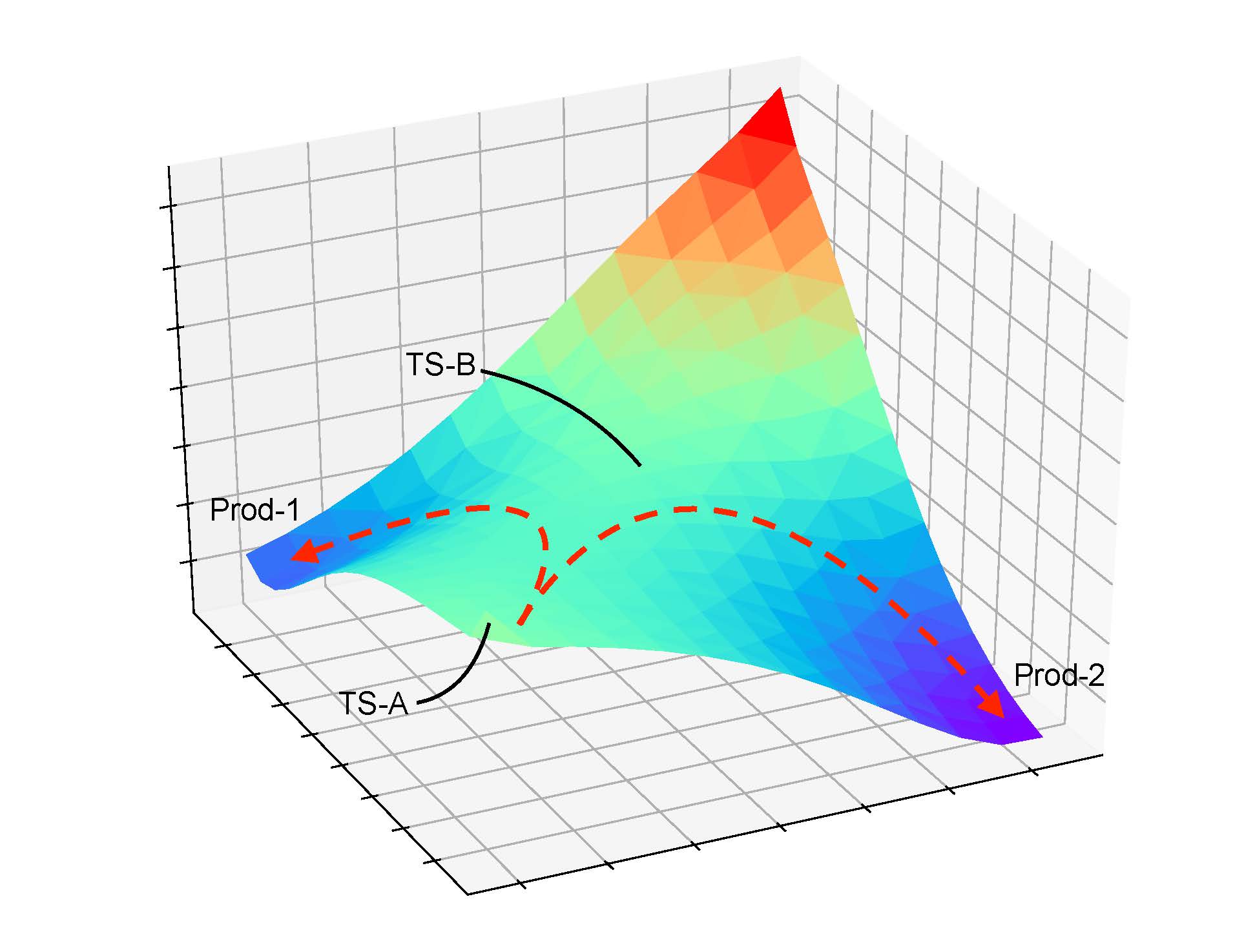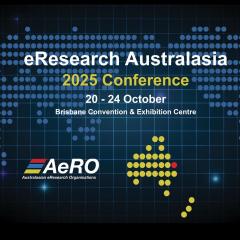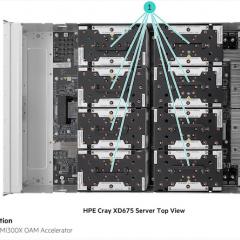
Dr Jed Burns knew he needed significant high-performance computing power for his discovery research in organic chemistry. To get the ball rolling, the UQ School of Chemistry and Molecular Biosciences early-career researcher (ECR) was fortunate that RCC provides excellent HPC resources free of charge to all UQ researchers who need it, even those just starting out.
Dr Burns wanted to apply modern computational methods to elucidate the mechanisms of organic chemical reactions, especially those suspected of possessing pathway bifurcations, in which the transition state (the ‘barrier’ to a reaction) leads to two or more chemical products.
For his independent computational chemistry investigations, he mainly used RCC HPCs Tinaroo (a UQ-specific HPC), Awoonga and previously, Euramoo, which Awoonga replaced last August. These HPCs allowed Dr Burns to begin collaborations with Professor Dean Tantillo of University of California, Davis, and conduct fundamental, curiosity-driven research.
His initial research, conducted entirely on Euramoo, Awoonga and Tinaroo (and largely the latter) was published earlier this year in the Organic & Biomolecular Chemistry journal.
“As a computational chemist who is mainly interested in small molecule organic systems, Tinaroo possesses more than enough processing power to complete my sometimes rather complex jobs in a reasonable time. The software is functional (and getting better all the time), intuitive and easy to access,” said Dr Burns.
He has used 120 GBs of scratch space on Tinaroo and used one node with 24 cores.
“I also greatly appreciated the opportunity to use Euramoo (now Awoonga) in order to learn the basics of supercomputing. It’s a lot easier and more fun to learn when you’re not afraid of embarrassing yourself or wasting your entire time allocation! I also use Awoonga to explain concepts to other researchers.”
Dr Burns said RCC support staff were there to assist him every step of the way, describing them as “very helpful and super knowledgeable.”
In his view, Australia’s current funding environment is not providing enough opportunities for ECRs to pursue their own independent research, “which counter-productively is what is really required if they’re going to progress in academia. RCC’s policy of making HPC systems available to all UQ researchers is therefore revolutionary. It has allowed me to conduct (and publish!) my own research, collaborate with local and international experts, provide a solid foundation for further grants and generally progress my academic career.
“Without access to accurate computational methods, experimental and theoretical chemists, such as myself, are missing half the story. We can hypothesise, estimate, and run careful experiments, but sometimes the real insights and breakthroughs can only occur by calculating the system of interest. Visualising the results (again using modern HPCs and software) provides a tactile familiarity with the data and really promotes deep understanding. Ready access to the HPCs greatly facilitates this process and makes the benefits available to all.”
The scientist hopes to achieve the ready identification and manipulation of bifurcating reactions, giving chemists control over the processes which “enrich and support our society”, with applications in areas such as medicines, agriculture and commodity chemicals.
“It is the synthesis of agrochemicals and pharmaceutical compounds which most stand to benefit — yields can be improved, side reactions minimised and unusual products can be accessed with exquisite selectivity,” said Dr Burns.
Previously, all methods to control these reactions have not worked. “We have no way of finding these reactions from first principles, only by happenstance.”
HPC resources and Gaussian, cutting-edge computational chemistry software, are “critical” to Dr Burns’ research, allowing him to calculate the properties of molecular systems and uncover hidden pathway bifurcations.
RCC is in the process of procuring a UQ site licence for Gaussian 16, making the latest version of Gaussian (and visualisation tool Gaussview) easily and freely available to all UQ researchers. RCC will also install Gaussian 16 on three of its HPCs, namely Tinaroo, Awoonga and FlashLite, and handle version updates.
“The most recent version of Gaussian has a number of modern methods, such as double-hybrid density functionals and empirical dispersion corrections, that are becoming absolutely essential for publishing in top-tier journals,” said Dr Burns. “That the RCC would work to make this software available to all UQ researchers, free of charge, is a testament to their commitment to world-class scholarship and should be commended at every opportunity.”
Dr Burns said he also particularly appreciated the face-to-face help he’s received from RCC staff, especially through RCC’s monthly ‘Introduction to HPC’ workshops, led by RCC HPC Manager Dr David Green, and via UQ’s weekly Hacky Hour, an informal meetup which assists researchers with research-related I.T. issues, frequented by RCC staff, such as Dr Marlies Hankel, Dr Nick Hamilton and Dr Igor Makunin, as helpers. HPC specialist Dr Hankel has been particularly helpful to Dr Burns’ research: “Marlies is wonderful, she expertly manages the UQ clusters, makes us aware of important information and constantly advocates on our behalf.”
Dr Burns ‘pays it forward’ by using what he has learnt to help others at UQ.
As a result of his hard work and access to world-class resources and expertise, the future of Dr Burns’ research career is looking bright. “Currently, I am collaborating with interested researchers and students, publishing my results and leveraging these early successes to access greater opportunities into the future.”
Read here for more information about how RCC supports chemistry research at UQ.
For HPC queries or issues, please contact the RCC Support Desk: rcc-support@uq.edu.au.




